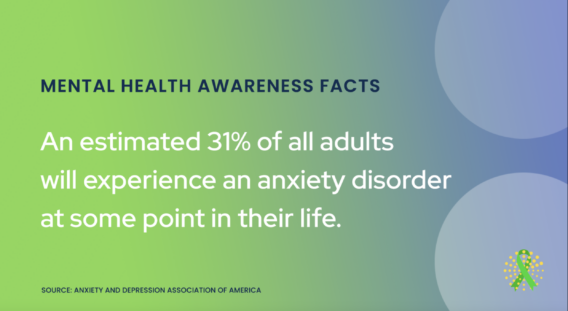Panic Attacks
If you are experiencing panic attacks please call CAPS at 201-761-6420 during regular business hours; after hours and on campus call Campus Safety at 201-761-7400, or if off campus call 911 or go to your nearest emergency room.
When someone you know is having a panic attack it can be difficult to know how to help. A panic attack can look scary, and is scary to the person having one, but staying calm can be a real help.
A panic attack is a sudden and intense feeling of terror, fear, or apprehension, without the presence of actual danger, and triggers our flight, flight or freeze response. It usually occurs suddenly, peaks in about 10 minutes, then subsides. Sometimes people can have many panic attacks in a row making it appear to be never ending.
The panic attack experience can vary from person to person, but some of the most common symptoms include:
- Chest pain or discomfort
- Chills or hot sensations
- Feeling of choking
- Feeling dizzy, unsteady, lightheaded, or faint
- Fear of dying
- Fear of losing control or going crazy
- Feelings of unreality (derealization) or being detached from oneself (depersonalization)
- Nausea or abdominal distress
- Numbness or tingling sensations (paresthesias)
- Palpitations, pounding heart, or accelerated heart rate
- Sensations of shortness of breath or smothering
- Sweating
- Trembling or shaking
According to PsychCentral there are 4 ways to help someone having a panic attack:
- Name It: Call it like it is; let them know they are having a panic attack, and they typically peak then subside. Gently and compassionately let them know they can make it through the next few minutes.
- Stay Calm: It can be upsetting to see someone you care about going through a panic attack. Keep reminding yourself that it is temporary and they will be OK; slow your breathing and ask them to do the same as you. Speaking slowly and softly will help set a calming atmosphere for both of you.
- Give Them Space: Triggering the flight or flight response can cause a person to become physically agitated (pacing, thrashing), so long as they are not in a position of accidentally harming oneself you can let them be. You can gently suggest ways to reduce stimulation around them; leave a crowded room, dim the lights, lower music for example.
- Offer Coping Statements: As much as you care try to avoid asking them if they are OK, this reinforces the idea that they are in jeopardy, and can have the unintended effect of increasing their fears. Let them know that they can make it through, it will pass in time, and if they have had panic attacks in the past remind them they made it or what they did that was helpful.
Learn more about panic attacks and how to assist someone who may be suffering.

